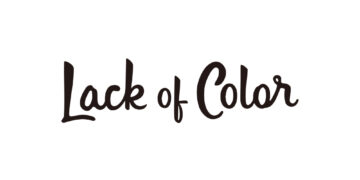The Increasing Challenges of Modern Life:
Life is a journey filled with its fair share of ups and downs, but in recent years, it seems that the downs have become more pronounced. As we navigate the complexities of the modern world, it becomes evident that life has become harder for many individuals. From economic pressures to societal changes and technological advancements, various factors contribute to the increasing challenges we face. In this article, we will explore some key aspects that highlight why life has become harder in recent times.
Economic Inequalities:
- One of the primary reasons life has become harder is the growing economic inequalities in society. The gap between the rich and the poor continues to widen, leading to limited opportunities for social mobility. Rising living costs, stagnant wages, and inadequate access to affordable healthcare and education have put a strain on individuals and families. Economic hardships can lead to financial stress, anxiety, and a diminished quality of life.
Technological Advancements:
- While technology has brought numerous benefits and advancements to our lives, it has also contributed to the challenges we face. The rapid pace of technological innovation has disrupted industries and job markets, leading to unemployment and job insecurity for many. Additionally, the constant connectivity and information overload have resulted in higher stress levels and a decreased ability to disconnect from work or social pressures. Technology has undoubtedly made life more convenient, but it has also introduced new challenges.
Social Pressures and Expectations:
- Society has placed increasingly high expectations on individuals, leading to additional stress and pressure. The rise of social media has created a culture of comparison and self-doubt, as people curate their lives to present only the most polished and perfect versions of themselves. This constant need for validation and the fear of missing out (FOMO) can lead to feelings of inadequacy, anxiety, and depression.
Environmental Concerns:
- The state of the planet has become a significant source of stress and worry for many individuals. Climate change, natural disasters, and dwindling resources have created an uncertain future. The constant reminders of environmental degradation and the urgent need for action can cause anxiety about the world we will leave behind for future generations. The stress of navigating an increasingly unpredictable and fragile ecosystem adds to the overall difficulty of life.
Mental Health
- Mental health issues are on the rise, and they pose significant challenges to individuals and communities. The fast-paced nature of modern life, coupled with the pressures mentioned above, has led to an increase in stress-related disorders, depression, and anxiety. Access to mental health resources is often limited, and the stigma surrounding mental health still persists in many societies. The burden of mental health challenges further compounds the difficulties of daily life.
- Changing Demands of Work: The demands of the modern workplace have significantly changed, adding to the hardships of daily life. Globalization and technological advancements have led to increased competition and a shift towards knowledge-based economies. This shift has created a need for continuous learning and upskilling to stay relevant in the job market. The pressure to constantly adapt, learn new skills, and meet demanding work expectations can be overwhelming, leading to work-related stress and burnout.
- Deteriorating Social Fabric: The fabric of society is undergoing profound changes, which can contribute to the increasing difficulty of life. Traditional support systems, such as extended families and close-knit communities, are weakening. People often find themselves isolated and lacking the social support they need to navigate life’s challenges. Loneliness and social disconnectedness have become pervasive issues, impacting mental health and overall well-being. The erosion of social bonds makes it harder to seek help or find a sense of belonging, further exacerbating the hardships of life.
- Political Uncertainty and Instability: Political instability and uncertain governance can significantly impact individuals’ lives and increase the difficulties they face. Economic policies, government regulations, and social reforms can have far-reaching consequences on various aspects of life, including employment opportunities, healthcare accessibility, and social welfare. Instability in political systems can lead to a lack of trust in institutions, further eroding the sense of security and exacerbating the challenges of everyday life.
- Personal and Family Pressures: Individuals often face a multitude of personal and family pressures that add to life’s hardships. Balancing work and personal life, meeting familial expectations, and fulfilling societal norms can be overwhelming. The pressures to succeed, provide for loved ones, and maintain healthy relationships can take a toll on mental and emotional well-being. Struggling to meet these expectations can lead to feelings of failure and increased stress levels.
- Cultural and Identity Conflicts: In an increasingly diverse and interconnected world, cultural and identity conflicts can contribute to the difficulties of life. The clash of values, beliefs, and norms can lead to discrimination, prejudice, and marginalization. Navigating cultural identity, especially for individuals from immigrant backgrounds or minority groups, can be challenging and result in feelings of alienation and isolation. These conflicts and challenges can impact personal well-being and make life harder to navigate.
As we reflect on the challenges of modern life, it becomes apparent that life has indeed become harder for many individuals. Economic inequalities, technological advancements, social pressures, environmental concerns, and mental health challenges all contribute to the growing complexities we face. Recognizing and addressing these issues is crucial to ensure a better and more equitable future. By prioritizing mental health, striving for economic justice, and fostering supportive communities, we can work towards alleviating the burdens and making life more manageable for everyone.



No Comments
Leave Comment